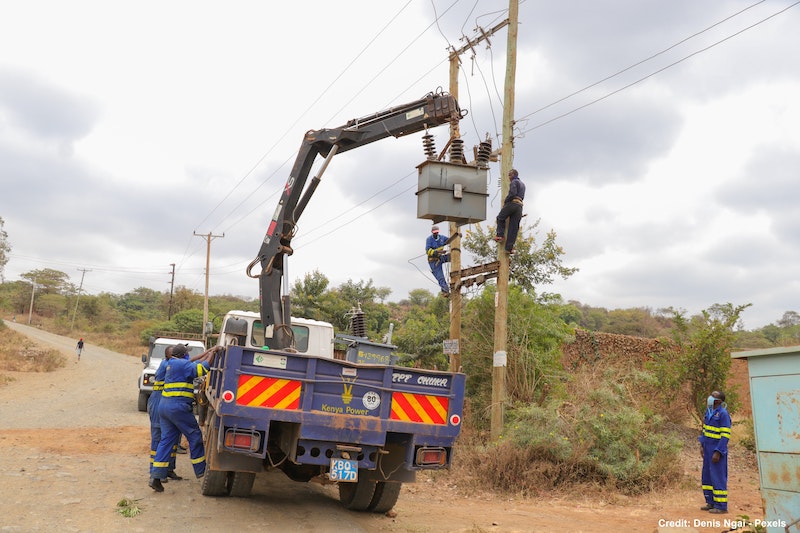In our ever-evolving world, where access to energy is increasingly recognized as a fundamental human right, one individual has made a significant contribution through groundbreaking research. Dr. Elizabeth Baldwin, also known as Liz, is a renowned law and public administration expert specializing in environmental and energy policy. Her extensive work delves into the intricate web of African electrification and its profound connection to political and civic participation.
Liz Baldwin's research on electrification dynamics in African nations has discovered historical parallels between the current challenges in bringing electricity to remote regions of Sub-Saharan Africa and the rural electrification efforts in the United States during the 1930s. She believes that by studying the past, we can gain valuable insights into tackling the current challenges of providing electricity access to low-density African areas. The reluctance of private electricity companies to invest in sparsely populated regions in the past is similar to the challenges we face today in Africa.
Liz's research highlights the significant role of the state in electrification endeavors and raises ethical concerns regarding providing electricity to underserved populations. According to her, electrification is not just about infrastructure but also equity. It must be asked whether it's fair to burden those with limited resources with higher prices for essential services. Her work emphasizes the importance of examining historical successes, such as the cooperative model used in the United States, when addressing electrification challenges faced by modern Africa.
Historical Success and Modern Challenges
In such scenarios, the state plays a pivotal role in electrification efforts. Providing electricity to these areas initially comes at a loss, as it may take years for these regions to consume enough electricity to become financially sustainable. Additionally, questions of fairness arise. Is it ethical to burden those with limited means to pay higher costs for electricity simply because it's more expensive to provide them with essential services? These are the moral dilemmas confronting policymakers when extending electrification to underserved regions.
The United States accomplished rural electrification through collaboration with communities and the formation of electricity cooperatives. This approach expanded the electricity grid and empowered people to control their energy consumption habits. Surprisingly, this successful model is often overlooked when facing electrification challenges in other parts of the world. As pointed out by Baldwin, international organizations, such as the World Bank, tend to prefer untested solutions over proven models like this one.
The Intersection of Electrification and Political Participation
Dr. Baldwin's research examines the intersection between electricity access and political engagement. Her findings challenge the idea that increased access to electricity always leads to increased political participation. Rather, electrification can have a nuanced impact on civic engagement. While it may empower some highly active individuals to participate more actively in their communities, for others, it can lead to diversion towards leisure activities like television. Her research highlights the diverse ways electrification can shape political dynamics and community involvement, providing valuable insights for policymakers and researchers seeking to foster inclusive civic engagement in African contexts and beyond.
Challenging the Social Entrepreneurship Model
Liz Baldwin's research takes a discerning look at various electrification models, including those championed by social entrepreneurs. While many social entrepreneurs claim to have discovered innovative ways to deliver electricity to impoverished African communities, Liz's investigations reveal some inherent shortcomings. Frequently, these models struggle to scale beyond pilot projects or cater exclusively to a limited demographic, leaving the most remote areas underserved.
Conclusion
Dr. Elizabeth Baldwin's extensive research on electrification and its impact on political participation in Africa highlights the complexity of the challenges faced in public administration and policy, as well as innovative solutions. Her work challenges established beliefs and emphasizes the importance of considering historical successes and local contexts while addressing contemporary challenges. Considering the electrification needs of the 21st century, Liz Baldwin's research provides valuable insights for policymakers and researchers. It advocates ensuring equal access to electricity and promoting inclusive civic engagement in African contexts and beyond.
Dr. Elizabeth Baldwin is an environmental, energy, and water policy expert at national and international levels. She is particularly interested in the roles of non-state actors in implementing natural resource policies, the impact of legal frameworks on stakeholder involvement, and how such involvement affects policy outcomes. Currently, she is working on two research projects. One focuses on the influence of private sector and non-profit organizations on energy efficiency and renewable energy policies in the United States. The other analyzes the use and governance of off-grid and decentralized energy systems in sub-Saharan African countries. Baldwin's research has been published in top-tier journals, such as Governance, Policy Studies Journal, Journal of Comparative Policy Analysis, Environment and Resource Economics, Annual Review of Environment and Resources, and Natural Resources Journal. She earned her Ph.D. from the School of Public and Environmental Affairs at Indiana University-Bloomington in 2015, where she worked as a research assistant at the Ostrom Workshop on Political Theory and Policy Analysis. Additionally, she holds a J.D. from the Indiana University Maurer School of Law and a B.S. in Environmental Policy from Unity College.


